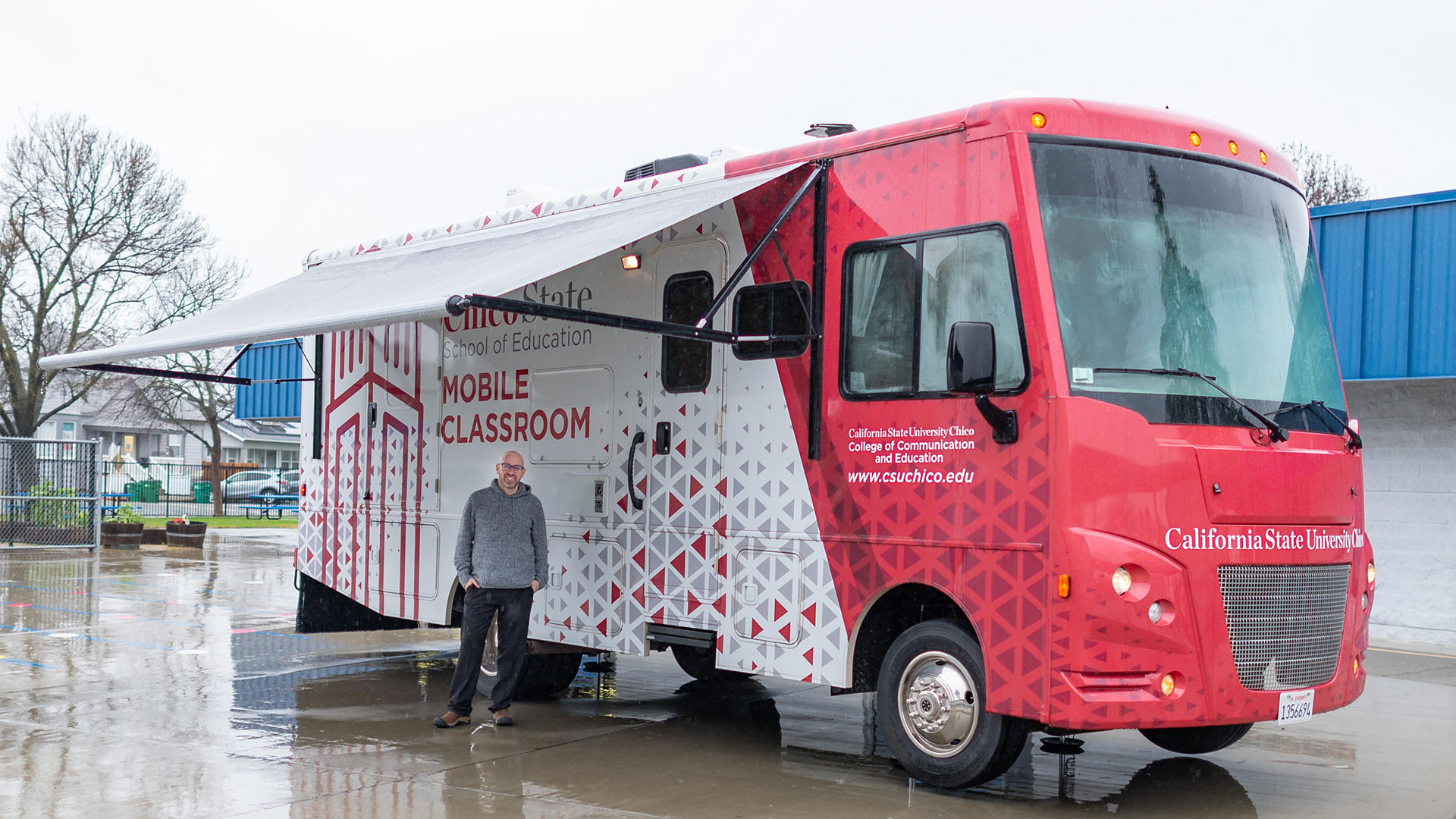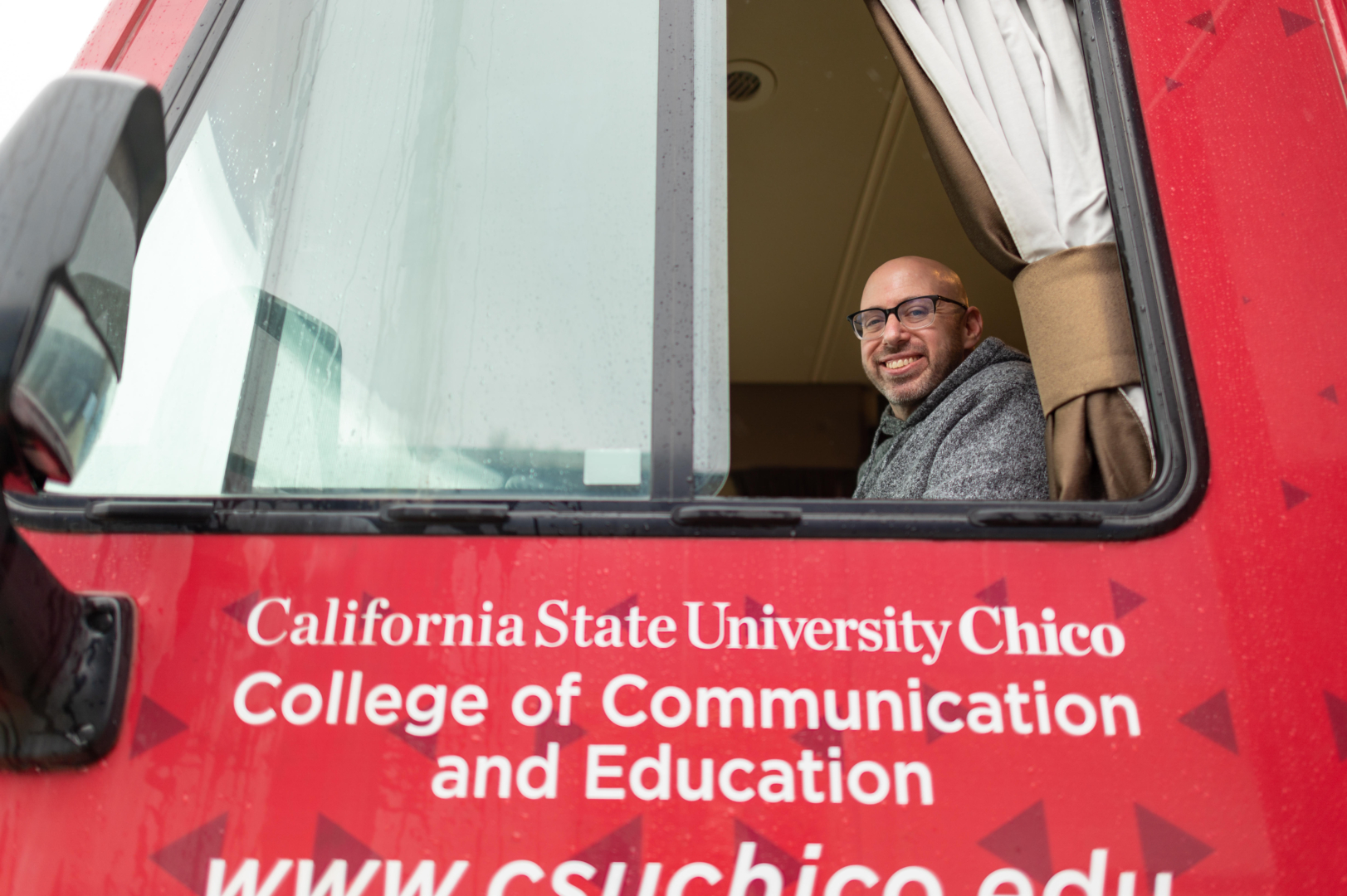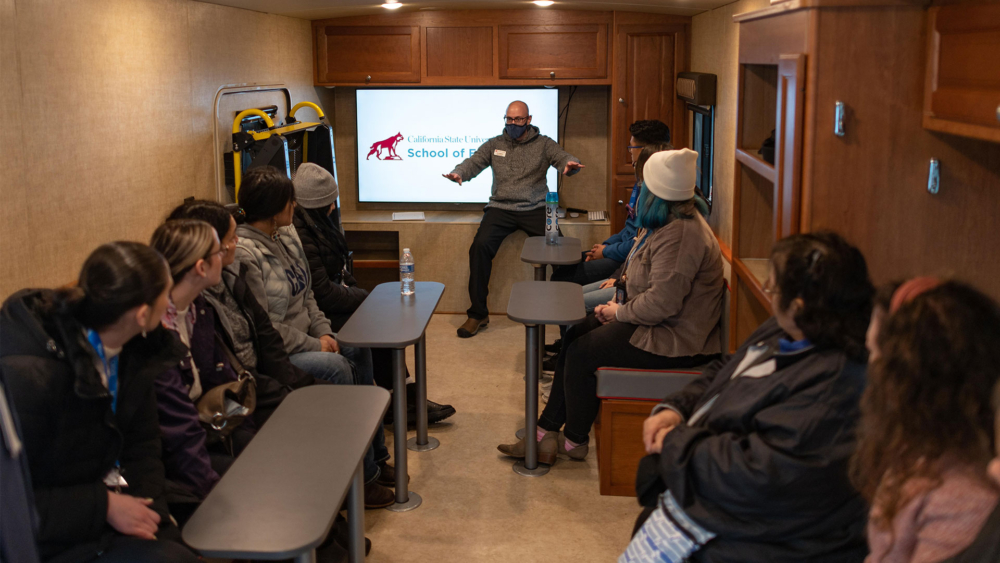School of Education Launches Mobile Classroom Project

Tal Slemrod and the newly converted Mobile Classroom. (Matt Bates / University Photographer)
According to a November 2022 journal published by the American Educational Research Association, teachers experienced nearly twice as many anxiety symptoms as healthcare workers during the pandemic. For Butte County educators, the burden of a worldwide pandemic was layered on top of challenges they already faced as the region recovered from the 2018 Camp Fire.
Chico State’s School of Education (SOE) saw an opportunity to offer educators in the region more support as they adjusted to new teaching methods post-pandemic.
That was when the concept of a Mobile Classroom came to light. The idea for a retrofitted recreational vehicle that could be transformed into a functional classroom on-the-go was set in motion by the School of Education and led by Tal Slemrod, associate professor and coordinator for the SOE’s educational technology and distance learning program.
Slemrod got to work finding a vehicle that was within budget and would meet all the department’s needs.
“One of the biggest criteria I wanted for the RV was for it to have a wheelchair lift built in it. Inclusion and accessibility were critical elements for the mobile classroom,” Slemrod said.
They were able to find an RV within budget in Florida and an upfitter, Leisure Coachworks, who could renovate it in Southern California. The upfitter removed everything, stripping the interior down completely, in order to transform it into a classroom. Meanwhile, Slemrod partnered with University Communications to design the outside wrap for the Mobile Classroom. The entire design and renovation process took nearly three years. Year four was spent developing partnerships and planning events.

On January 11, despite heavy rain and winds, Slemrod loaded up the vehicle and set out on its first trip of 2023.
Through a partnership with Dr. Aaron Koch, educational services coordinator for the Glenn County Office of Education, and Samuel Hess, principal of the Mill Street School in Orland, Slemrod was able to use the Mobile Classroom to provide professional development to classified staff at Mill Street.
The classified staff, made up of yard monitors, teacher aides, and special education aides, voiced a desire for special training during a needs assessment Hess conducted. Mill Street School, which is considered to be in a rural community, was the perfect partner for the Mobile Classroom project.
“When you are geographically distant from other bigger cities, getting people to come out to visit can be a challenge,” said Hess. “Sometimes in rural communities you have to travel to go to professional development events. . . . (the Mobile Classroom) could be a model for how we can continue learning together locally, rather than having to spend three days at a conference.”
The Mill Street trip allowed Slemrod to hear the specific needs of its classified staff and include a time of training that focused on special education. For Slemrod, the trip was also an opportunity to extend Chico State’s long-standing support for educators to the broader community.
“Without the Mobile Classroom, these educators would not be able to connect with the university. That we could support them and their students means the world to me,” he said.

Koch, in addition to working for Glenn County, is a part-time instructor for the School of Education. He helped coordinate the Mill Street visit and see the Mobile Classroom project as a metaphorical “leg up” for struggling educators.
“It’s important that people who work in the trenches feel supported by outside agencies, including the CSU,” he said. “Schools are tough places to work right now. It’s one thing to want to go to university. It’s an entirely different notion to have the university come to you and provide your local education agency, site, or district with relevant skills and tools that can be deployed immediately to help students in the community.”
Beyond continuing trips to nurture the relationships with partner schools and districts, the School of Education has additional plans to put the Mobile Classroom to use. In the near future, the Mobile Classroom will serve as a support vehicle for place-based learning activities and community outreach. From outdoor lessons to personal development sessions, to Torres Shelter fundraising events, and creating a safe space for children on the spectrum at Autism events, the Mobile Classroom has many opportunities on the horizon.


